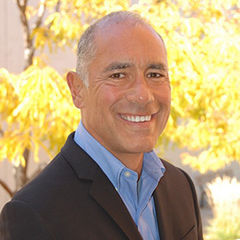This is Part 4 of a 6-part series titled "Successful Coaching During the COVID Crisis". Read Part 5 here.
Most of us are faced with managing previously unheard of stressors during these difficult times, including both personal and economic challenges. For most exercise professionals, running a training or coaching practice successfully requires nearly constant focus. On one hand, we are trying to provide as much quality engagement with our clients as possible while also maintaining social distancing. On the other hand, we are challenged with managing the stresses and potential burnout associated with running a service business that is dependent on human contact. During the best of times, it is a balancing act. Now, this act likely must shift in some fashion to pay the bills and maintain some degree of business productivity. Not to be trite, but this is a significant challenge that presents an opportunity to grow both personally and professionally.
Even under normal circumstances, stress and burnout are common concerns among those working in health and helping professions. Both can happen when people try to reach challenging goals and end up feeling burned out and unmotivated. This, in turn, can cause them to lose touch with themselves and others in the process, including their clients. According to the World Health Organization (WHO), occupational burnout is a syndrome resulting from chronic workplace stress that has not been successfully managed. It is characterized by (1) feelings of exhaustion; (2) increased mental distance from or feelings of increased negativism toward one's job; and (3) reduced professional efficacy (WHO, 2019). Burn-out can be seen in highly committed, conscientious, and hard-working people and can be experienced by those who care passionately about the work they do.
Let’s consider the low-hanging fruit in terms of coping during tough times. Keeping this simple, there are two basic coping shifts to consider:
- One involves the self-management practices that are easy to put off even in ideal circumstances.
- The other involves the shift (or shifts) that have to do with your business and work in the health and fitness field.
With self-management as the top priority, let’s first consider the foundational challenges that most successful trainers and coaches are faced with even during “normal” times.
The following are some common actions during which stress routinely manifests for health coaches and exercise professionals:
- Coaching a challenging client
- Mastering phone coaching skills
- Working early and late hours
- Planning for fluctuations in cash flow
- Finding new clients
To better manage this stress, you can implement the following self-management practices:
- Plan for self-care at least 20 minutes to as much as one hour per day. This can mean performing exercise, getting a massage, or reading a good (non-business) book.
- Connect with a friend on the phone or via video conferencing.
- Take a yoga class.
- Take time for a long walk or hike.
- Simply add some “white space” regularly in your calendar to give yourself a break between coaching sessions.
One potential benefit of these tough times is that you may have more time available to try some new or enhanced self-management practices. Thinking in terms of mind, body and spirit, there are numerous options available to you.
- Mind: Set aside time for learning. For personal trainers, the biggest change worth considering in your business practice may be the integration of coaching skills into your training. Both personal trainers and health coaches should consider enhancing their services through upgrades in technology. Whether it’s seeking continuing education on improving your coaching skills or improving your own self-coping practices during stressful times, the act of learning can be of tremendous value to you both personally as well as professionally in enhancing your skills in working with clients.
- Body: Perhaps your own exercise and/or nutritional practices can use a bit of a shift. What have you not been doing in these areas that you have long thought you should give a try? Perhaps now is the time.
- Spirit: This is an area of practice that is often overlooked. Maybe now is the time to take on a little investigation or have a spirit-enhancing experience that could be life changing.
The only rules of self-management are that it is personalized to your needs and desires and something you truly enjoy. And be sure to schedule it! It can be easy to forget to take care of yourself when you are so focused on serving others.
With fitness facilities in various levels of shutdown around the world, alongside the likely lingering fear of personal contact, now is the time to consider moving at least some of your business online and/or conducting some sessions over the phone. This is a great time for exercise professionals to consider enhancing their coaching skills by using the ACE Mover Method philosophy to integrate behavior-change principles into their sessions, or even by becoming ACE Certified Health Coaches.
By embracing these challenges, you provide yourself with a fighting chance to overcome them. Making anywhere from a few tweaks to major shifts in your approach can result in lifelong changes that will enhance both your personal and professional lives.
References
World Health Organization (2019). International Classification of Diseases for Mortality and Morbidity Statistics, 11th Revision (ICD-11).




 by
by 





